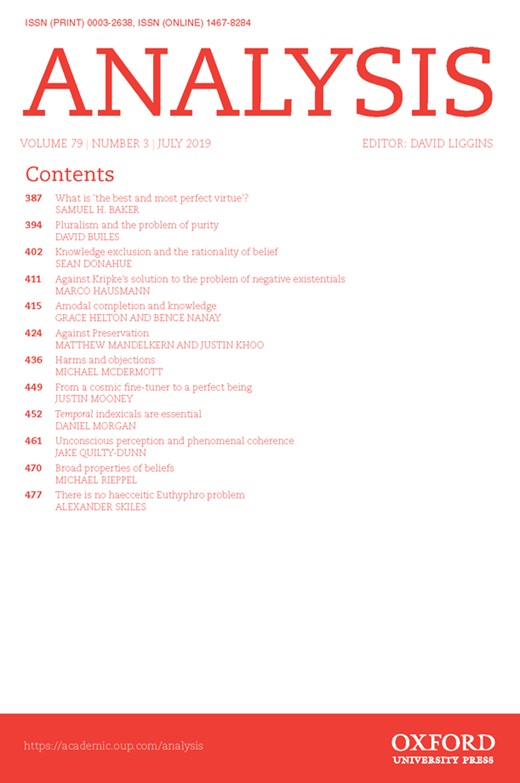-
Views
-
Cite
Cite
Gary Ostertag, The Analytic Tradition in Philosophy, Analysis, Volume 79, Issue 3, July 2019, Pages 560–571, https://doi.org/10.1093/analys/anz044
Close - Share Icon Share
Extract
1. Introduction
According to its dust jacket, the current volume1 is the second in a projected five-volume series. The completed series is intended to supplant Soames’s two-volume work, Philosophical Analysis in the Twentieth Century (Soames 2003a, 2003b), providing more comprehensive, detailed and sophisticated coverage of the topics and figures there discussed (2014: xi). Volume 1: The Founding Giants (Soames 2014) covers Frege, early Moore and early Russell. Volume 2 is somewhat less unified. Part 1, devoted to Wittgenstein’s Tractatus (Wittgenstein, 1922), is thematically continuous with the first volume. Parts 2 and 3 mark a cleaner break, focusing, respectively, on the emergence of Logical Empiricism in the 1920s and 30s (with a chapter on the concurrent developments in logic) and on ethics in the face of the empiricist criterion of meaning (the Moorean background covered in Volume 1 looms large here).
Readers of the earlier work will be unsurprised to find that Soames’s approach to the subject remains conservative. In general, but with some exceptions, the themes, figures and works discussed are all familiar. Judging by this volume and its predecessor in the series, someone looking for a reassessment of the overall narrative – uncovering new lines of influence, incorporating related developments outside of Germany and Great Britain (the volumes’ main geographical focus), introducing a larger cast of characters – will come away disappointed. Still, the volumes provide a valuable guide to the canonical themes and figures. And while they do not provide a ‘new narrative’, they do an exemplary job of clarifying and fleshing out the standard view, providing painstaking and often illuminating reconstructions of central arguments.2




